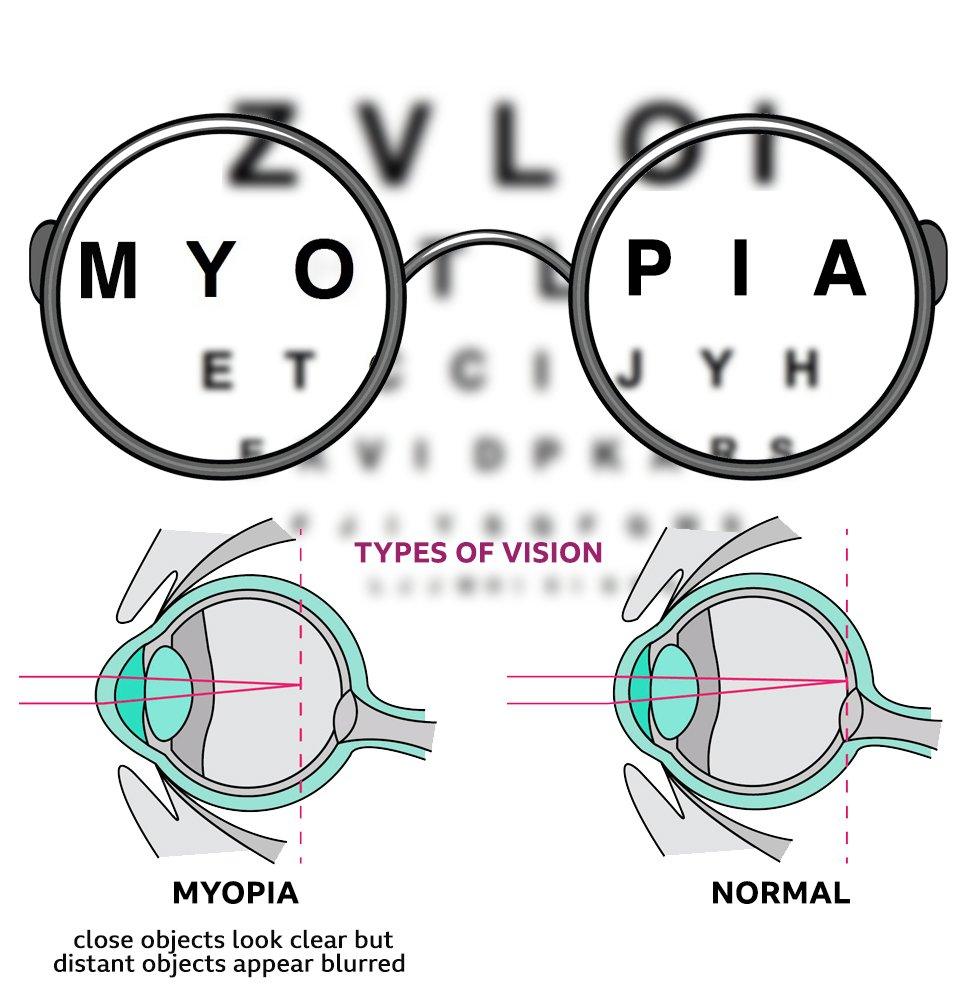Education can 'unintentionally cause short-sightedness'
- Published

The researchers said the findings have important implications for education
The longer a person spends in education the more short-sighted they are likely to become, according to new research.
Cardiff University researchers found the difference between those who left school at 16 and those who completed a degree was enough to blur vision below legal driving standards.
Known as myopia, short-sightedness is one of the leading causes of visual disability in the world.
A professor said education may unintentionally cause the condition.
There were 68,000 participants in the study conducted alongside Bristol university and health resource UK Biobank.
The study focused on education because of observational studies reporting links for more than a century.
The severity difference between someone who left school at 16, with 12 years of education and someone who completed a degree at 21, was significant.
Cardiff University's Prof Jez Guggenheim said the study proves education is a "causal risk factor" for myopia and has "important implications for educational practices".
"Myopia develops mainly during school years and then tends to stabilize in adulthood," said the professor from the school of optometry and vision sciences.

"Therefore any intervention to halt myopia progression needs to be given in childhood.
"Policymakers should be aware that despite its undoubted benefits, education may also have the unintended consequence of causing increasing levels of myopia - and, potentially, visual disability in later life."
However, it was unclear how exactly education impacts a child's eyesight.
One finding was that spending more time outdoors protects children against the development of myopia.
Another was, near-work activities such as reading play a part, although not to the same extent as lack of time outside.
Until links are better understood, the research team recommended children spend plenty of time outdoors.
Cases of myopia are rising in the world and reaching epidemic levels in parts of east and southeast Asia.
A 2016 study by organisation Vision UK, external found about 20% of UK teenagers were myopic.
It occurs when a sufferer's eye does not bend or refract light properly, meaning close objects look clear but distant objects appear blurred.
- Published28 December 2017

- Published25 October 2011

- Published30 July 2014
